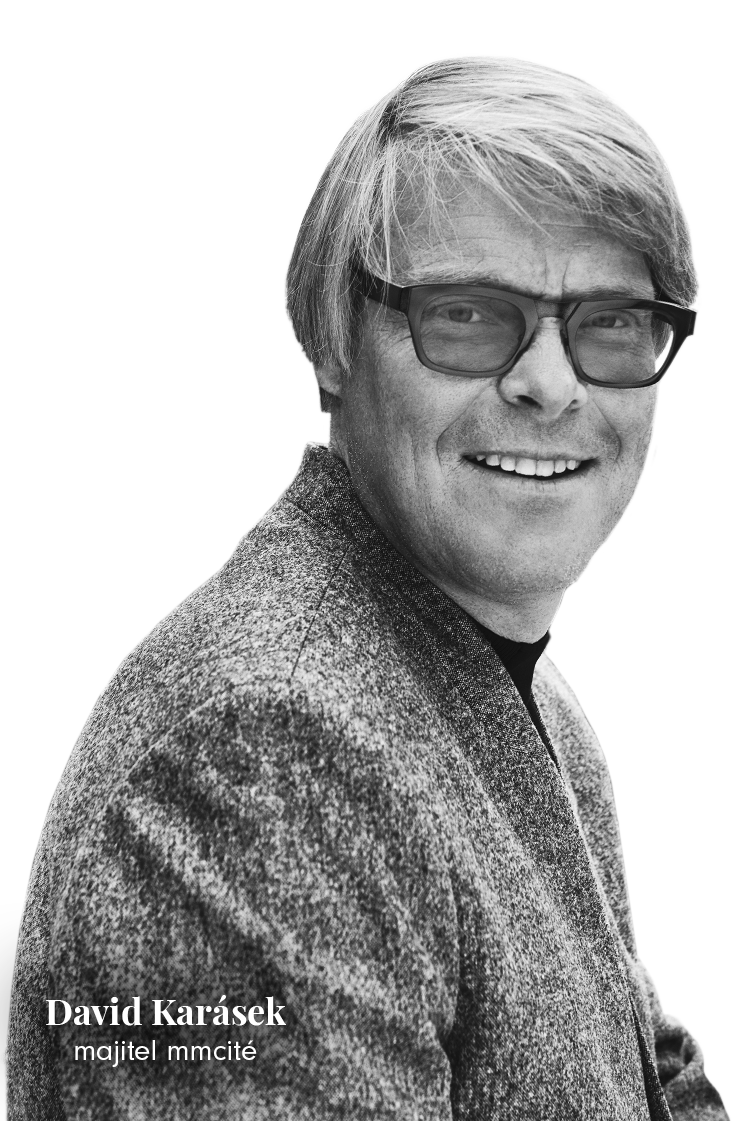When a tourist wants to relax at the viewing station of the new cable car to Mont Blanc, Europe’s highest mountain, at 3,462 metres above sea level, the mmcité benches will do the trick. The same is true in Mecca, Saudi Arabia, where Muslim pilgrims and others can relax on the same brand of seating. The company from Bílovice near Uherské Hradiště has also furnished the Olympic Village for the Rio de Janeiro Games and various New York rest areas. Its bike shelters have also been successful in the business district of the “city of fashion” – La Défense in Paris.
Today, mmcité sells 80 percent of its production abroad, and the United States is one of its most important markets, accounting for about one-fifth of its turnover. Over its 30 years of existence, it has built up ten branches worldwide and operates through exclusive distributors in thirty-five other countries. Its consolidated sales last year amounted to nearly CZK 1.1 billion. “We felt from the beginning that urban furniture is a difficult to exhaust and at the same time very necessary design topic, because it concerns cities, which are an endless story. Later developments have confirmed this feeling very well,” says David Karásek, the head and owner of mmcité. His story shows that he is a man who knows what he wants and knows how to go after it.
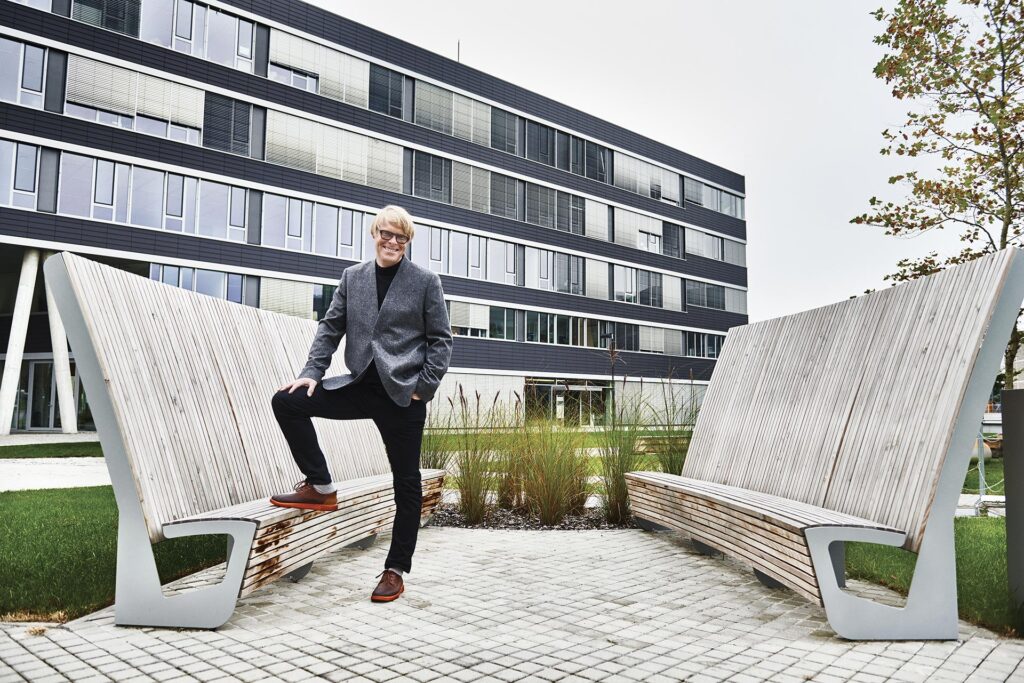
Nothing turns into something beautiful
In the second grade of elementary school, he shocked his teachers by saying, when asked about his future profession, that he wanted to be an industrial designer. His fascination with cars and articles from the Geneva and Paris motor shows, where various design studies of future models could be seen, led him to this. “It was industrial design at its most pure, where it’s about technology and functional issues, but also about emotion and form. At the beginning there is nothing, at the end there is something beautiful,” says David Karásek. Thanks to his passion, he graduated from high school and college of art and industry in a very straightforward way. It was in college that his business began.
In 1992, while still students, he and his colleague Radek Hegmon won a competition to design elements of urban furniture for Zlín. “From the very beginning we have followed the rule, which is unfortunately often broken, that design should not have too much invasiveness, aggressiveness or, let’s say, too much richness of form. From today’s point of view, our proposals at that time are ridiculous, but they were a success back then. However, we still honour the rule of non-invasive design,” Karásek recalls. Part of the first prize was the execution of the winning design, the genius of which was the shelters. The young, inexperienced designers were thus faced with quite an extensive implementation.
It turned out that it would not be easy to find a manufacturer of the desired quality in post-communist Czechoslovakia, because, in the words of Karásek, “communism had screwed up the craft too.” So, although they originally just wanted to have a design studio and do design work, the experience with the Zlín contract eventually led them to start manufacturing in 1996, two years after the founding of mmcité. They didn’t have any capital and financed everything only from the contracts they won. First they got together the craftsmen, who worked mainly for them, then they managed to get “something like a bigger garage” and there they really started their own manufacturing.
-
mmcité founded.
-
The designers from Bílovice start their own production.
-
The company opens its first foreign branch in Slovakia.
-
mmcité enters the German market with the Brunea bench.
-
The Meandre bike rack won the first and highest international design award: Red Dot Design Award and Good Design Award.
-
The first non-European branch opens in Brazil.
-
mmcité supplies 230 benches and 180 bike racks for the Olympic Village in Rio de Janeiro.
-
After more than 25 years of its existence, the founding designer David Karásek becomes the sole president and owner of the company.
Challenges make you a better person
The contract for Zlín was a good stepping stone, and more work came in. But at the end of the millennium there was a downturn, which forced mmcité to launch a second production programme. The reconstruction of railway corridors offered an interesting opportunity, and so the company started working on furniture for the railways. Many years later, the two original partners parted company – David Karásek stayed with urban furniture, Radek Hegmon separated with a new company focused on design elements for infrastructure projects such as railways.
In 2001, mmcité started its international expansion by opening a branch in Slovakia. “But it soon became clear that the Czech and Slovak markets were too small for us. In order to offer a better sales price, we needed to produce more, so we looked for other foreign outlets and started by participating at a trade fair in Germany,” Karásek says. There, the company from Bílovice managed to acquire key distributors for several large European markets. “It was a test for us to see if we could succeed. When we had gone abroad before, we thought there were great things on display that we couldn’t compete with. But they liked our products and didn’t want to believe that we were from the Czech Republic,” David Karásek recalls. He also notes that mmcité broke through with finished products on Western markets at a time when domestic companies usually had the ambition to be subcontractors to Western partners at best. According to him, it was a tough school that taught Czech designers a lot. “It was just a confirmation of the truth that when you face a challenge, you get better,” Karásek said.
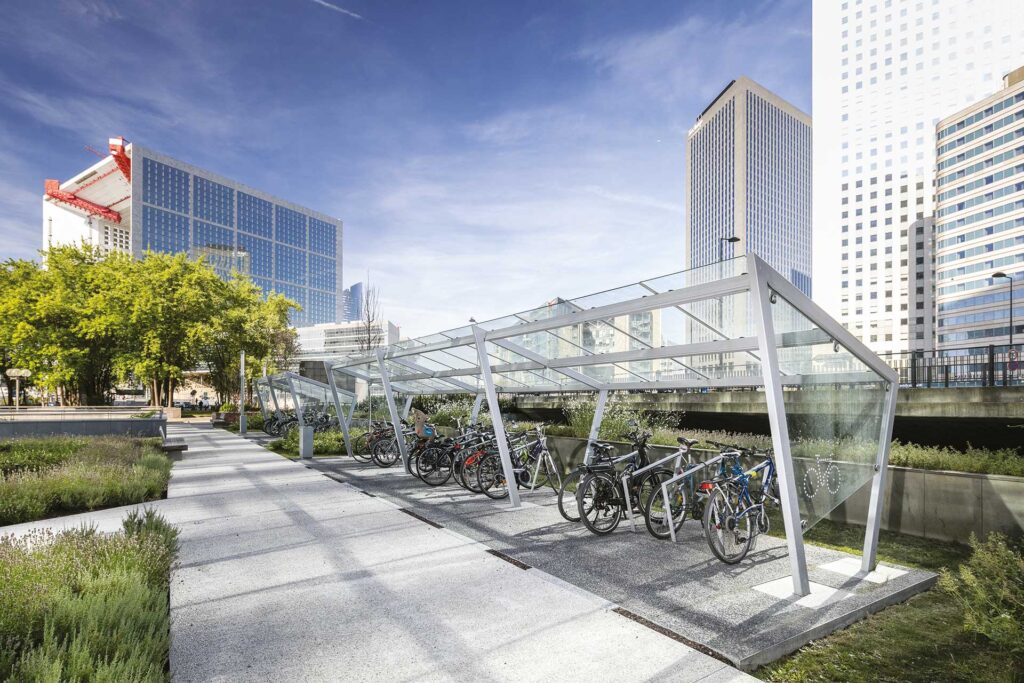
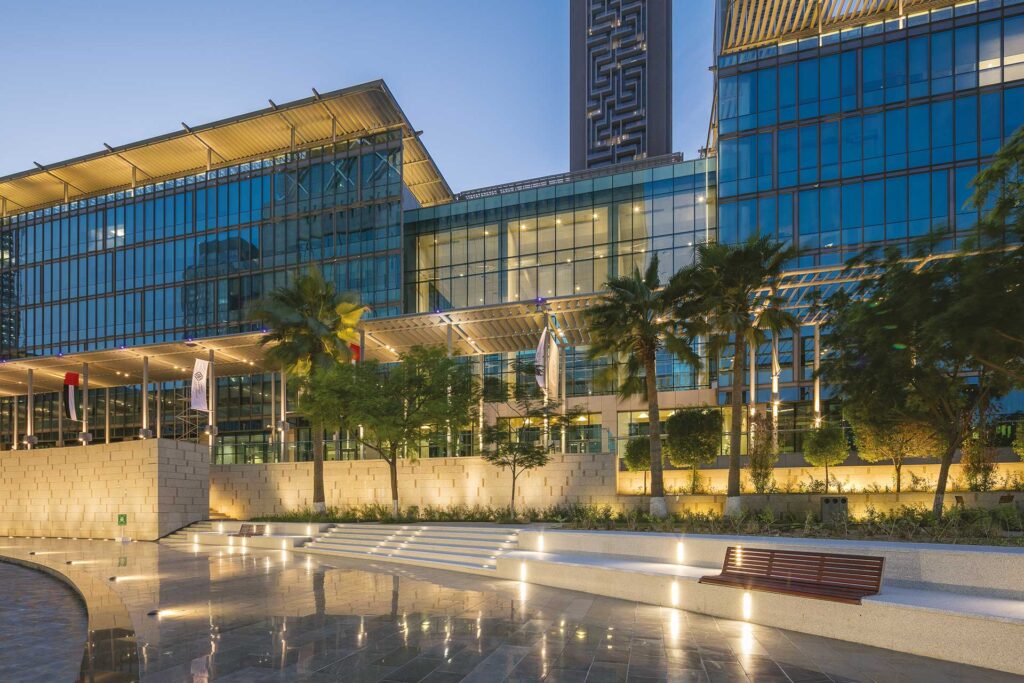
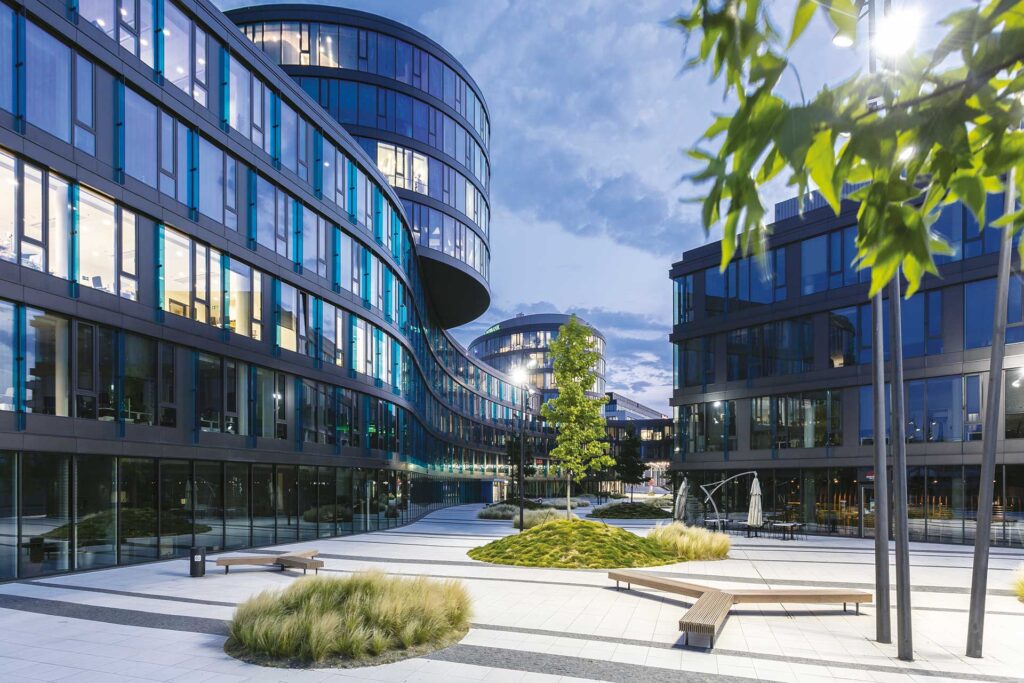
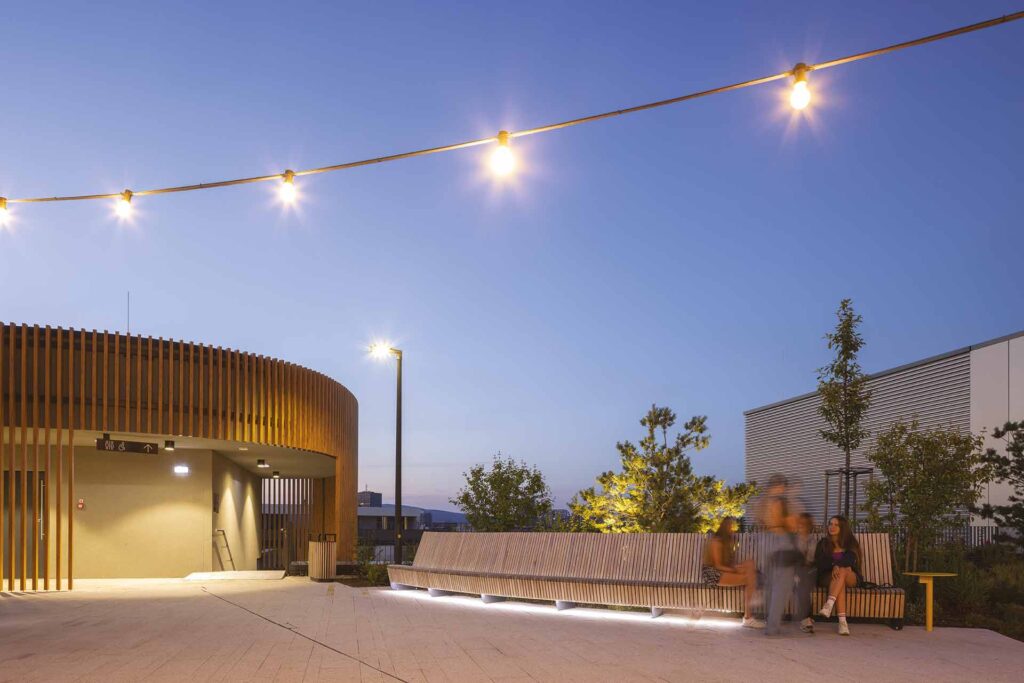
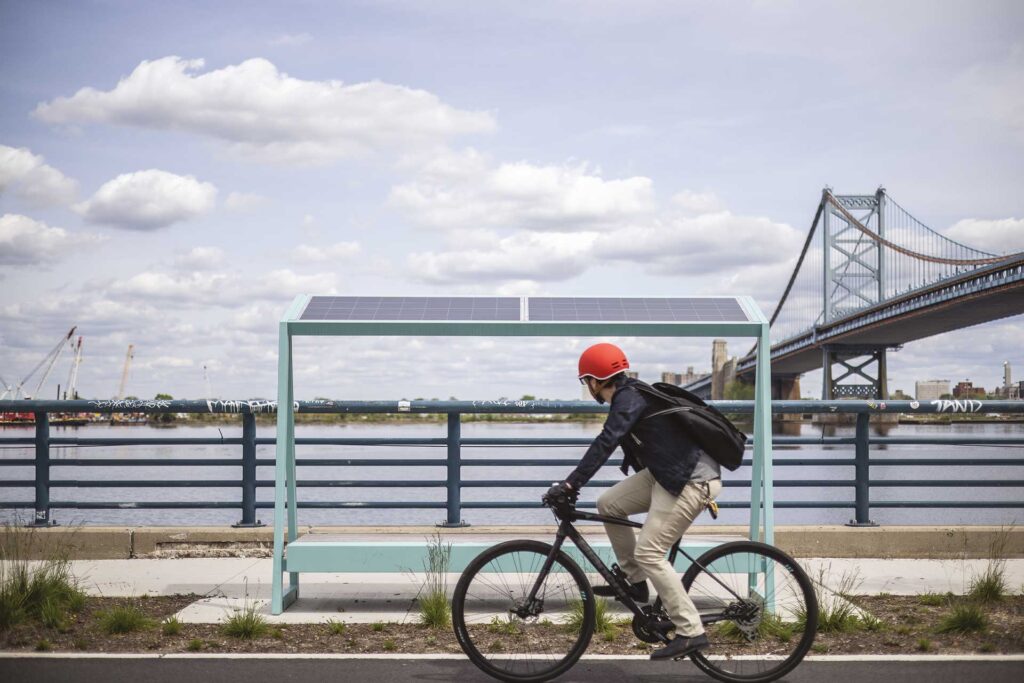
We can handle tough markets and tough times
However, even Europe became too small for the company over time, and so in 2012 it opened its first branch outside the old continent – in faraway Brazil. The management had ties to Latin America, and the research conducted showed that the Brazilian and Latin American market in general was not saturated with urban furniture and was therefore very promising. But according to Karásek, Brazil is certainly not an easy market, because crises and booms are more abrupt than is usual in Europe, and the public sector, such as municipalities, is not flush with money, so the customers tend to be private developers. However, the company set up its second production base there, mainly due to high import duties, which now serves mainly the American continent, thus shortening transport distances.
mmcité has managed to grow steadily over the course of its existence, but one of the few years when this did not happen was the first year of the covid pandemic – 2020. However, the company’s profit increased because it did not go to trade fairs and other events, so costs fell. In the following year, the growth of turnover continued again, because the projects started in spite of the crisis were not stopped and the general transition of companies to online helped to maintain business communication. Last year they faced disruption caused by fluctuations in raw material prices and the unavailability of some materials. “This caused us big problems, but it affected the entire economy, so customers understood, even if we had to increase the price of the contract. In the end, we again reached a record turnover of one billion and nearly one hundred million after consolidation,” says David Karásek.
Design that serves
Product-wise, the main drivers of the mmcité turnover are benches and other seating elements for public spaces, followed by bus shelters and trash cans. According to the company’s boss, urban furniture is now approaching regular furniture in terms of style, as public space is increasingly inhabited. “Until about 20 years ago, people mainly wanted to get somewhere quickly along the street, but nowadays they are occupying it, and urban furniture is increasingly necessary. It was compounded by the covid. People realised how much they missed public space when they were locked down at home, which in turn raised their interest in it. This is good news for our business,” explains David Karásek.
Another direction of development is the extension of the functions of urban furniture by means of various technologies. “I always say the best trend is to stay away from trends, so we always look at trends critically and try to focus on what really addresses a human need. Today, we have a number of technological products, such as benches with charging, because people need energy for their mobile phones or bikes. We also make furniture with solar panels that is independent of the grid because it produces its own energy,” says David Karásek.
At the same time, mmcité is always looking for new production programmes that would complement the existing one. This could be public lighting or playground elements. “But we would always go down the path of some kind of cooperation or acquisition – we would certainly not start from scratch. Our advantage is our significant sales force – we have our own capable sales teams in eleven markets including the Czech Republic,” says Karásek. And the brand itself is already a global name in the industry.
However, the company now wants to invest primarily in production to meet growing demand. It would like to move from rented premises to its own and complete some investments in technology. Because bank loans are expensive, mmcité has decided to go to the stock market for new capital.

